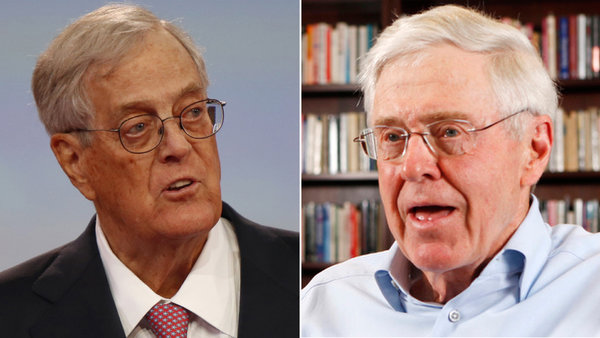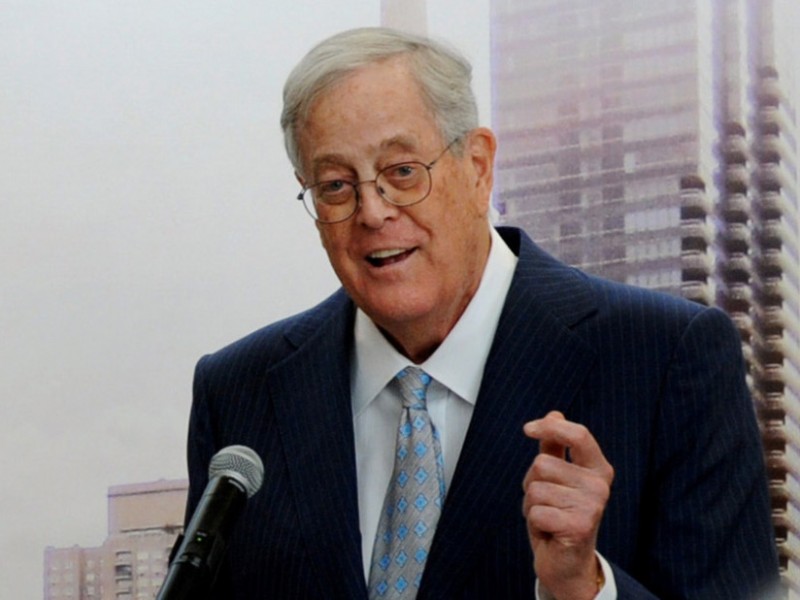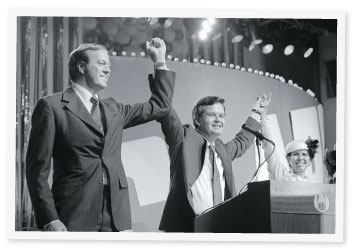March 3, 2011- Late on a frigid Wisconsin afternoon, an hour before another of the evening demonstrations that brought thousands, then tens of thousands, then more than 100,000 public employees, teachers, students and their allies to the great square that surrounds the Capitol in Madison, Sarah Roberts was sitting in the Ancora coffee shop warming up. With her blunt-cut blond hair and hip retro glasses, the library sciences grad student looked the picture of urban cool, except perhaps for the decades-old factory ID badge bearing the image of a young man. “A few weeks ago I asked my mom, ‘What made my grandfather such a civic-minded man? Why was he always there to help someone who had lost their job? Take food to someone who couldn’t make ends meet? Serve on the City Council? What made him so incredibly engaged with his community and his state?’ Mom looked at me and she said, ‘Labor.’”
So it was that the granddaughter of Willard Roberts—a forty-five-year employee and proud union man at the Monarch Range plant in the factory town of Beaver Dam—pulled out her grandpa’s ID and pinned it to her jacket when she learned that Wisconsin Governor Scott Walker was proposing to strip state, county and municipal employees and teachers of their collective bargaining rights. “This state was built by people like him; this country was built by people like him. I think we all kind of forgot that until the governor woke us up,” she said. “Walker thought he could bust the unions, privatize everything, give it all away to the corporations. But that was a great misfire. Because when he attacked the unions, he reminded us where we came from. We’re the children and grandchildren of union workers and farmers and shopkeepers. That goes deeper, way deeper, than politics. This legislation is an affront to my whole family history.”
After three decades of attacks on public sector unions, dating back at least to Ronald Reagan’s breaking of the air traffic controllers in 1981, the mass uprising against Walker’s attack has revealed a popular understanding of the necessity of the labor movement that is far richer than even the most optimistic organizer imagined. The bonds are not just economic or political; they are emotional and personal. And when the determination of corporate interests and their political pawns to destroy unions—not by slow cuts, as is so often the case, but all at once—is revealed, all that talk of building coalitions, of creating movements linking union members with those who have never joined, suddenly moves from theory to practice. Thousands of students show up for an impromptu show by rocker Tom Morello and pump their fists in the air as they shout the lyrics of union songs they are only just learning. Tens of thousands of citizens—not just public workers fearing for their livelihood but students fearing for their future and small-business owners fearing for their community—chant in unison as they rally in cities across the state, “An injury to one is an injury to all.” After we finished talking, Sarah Roberts told me she couldn’t go to the demo just yet: “I’m meeting my mom here. She’s driving in. She wanted to be here to honor her father and to stand on the side of the workers.”
The remarkable events that have transpired in Wisconsin since February 11, when Governor Walker announced he would attach proposals to a minor budget repair bill to strip away the rights of public employees and teachers to organize in the workplace and to engage in meaningful collective bargaining, have made Wisconsin, in the words of AFSCME union president Gerald McEntee, “ground zero in the fight for labor rights in the United States.” They have also created what the Rev. Jesse Jackson, who rallied more than 50,000 demonstrators on a freezing Friday night, describes as “a Martin Luther King moment” for supporters of economic and social justice. The size of the demonstrations, which have filled the central square of this capital city in much the way that demonstrators filled Tahrir Square in Cairo just weeks earlier, has focused more attention on an American labor struggle than has been seen in decades. This struggle—all but certain to see legislative disappointments, legal challenges and dramatic electoral twists and turns before it is done—raises key questions about whether mass movements can forge not only a new and better economy but a new and better politics. Walker will get his way on some issues—too many issues. But that’s not the most important story out of Wisconsin. The most vital story is the one that people on both sides of this struggle least expected: after years of efforts by unions to rebrand and reposition themselves as “partners” and “constructive collaborators” with employers, many Americans still recognize that perhaps the most important role of the labor movement is as a countervailing force not just in the workplace but in politics. And this at a time when public services and education are under constant assault from corporate privatizers and billionaire political donors who are more than ready to “invest” in election results that will lower their taxes and serve their interests.




'The Nation: The Spirit of Wisconsin' have no comments
Be the first to comment this post!